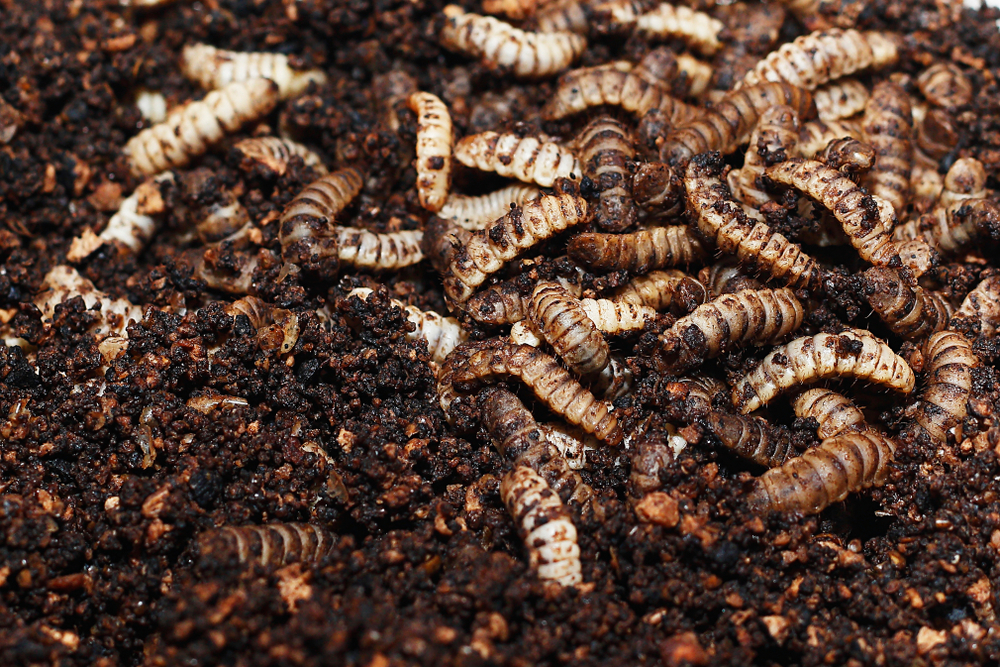Black soldier fly larvae are becoming a hot commodity during a time of crisis for farmers.

In reaction to fertilizer shortages worldwide, Ugandan farmers are reaching for an alternative way to fertilize their fields—maggots.
The fertilizer shortage is credited mainly to Russia’s war in Ukraine. Together, the countries are responsible for the export of nearly 30 percent of nitrogen and phosphorus-based fertilizer across the globe.
The organic process of producing fertilizer using maggots is simple. The maggots—larvae of the black soldier fly—are placed in large vats or tubs full of fermented food waste (the fermentation process softens the waste). There, the maggots go to work, eating the food waste over a period of about a week. As they digest the waste, enzymes break it down, and the insects’ feces then becomes usable fertilizer.
Uganda is known for growing cotton, tea, tobacco and coffee—the latter of which brings in the highest revenue stream in the region. But with synthetic fertilizers in short supply, prices have doubled or tripled for the crop-boosting inputs. In sub-Saharan Africa growing regions, most farmers are operating small, primarily family-run farms with tight budgets, leaving producers unable to afford the new, higher prices of synthetic fertilizers.
And in Uganda, the maggot-filled vats are quickly becoming a hot commodity. Agricultural officials in the country are distributing the vats for free, taking interested farmers’ names down on a list to receive some of the fertilizer-producing insects.
The number of farmers in Uganda’s farm district using the larvae farming program—facilitated by waste management company Marula Proteen and agricultural exporter Enimiro—has grown from just two farmers in January 2021 to more than 1,300 participating farmers today.
And thanks to the process, farmers aren’t just getting nutrients for their crops. Once producers get the vats, they are guaranteed a “three-fold cash profit,” according to the AP, after 14 days of raising the larvae on food waste. The farmers then get to keep the cash and the fertilizer the maggots produced, and the waste management company gets a growing population of maggots to keep the program, which originated in 2017, going.
The larvae farming programs are not unique to Uganda. They also exist primarily in regions that continuously suffer with drought, including Nigeria and Kenya.
But, maggots turn into flies. What does the complete cycle look like? Are the flies fed to chickens?
How is this better than conventional composting? Or vermiculture (raising worms)?
So many questions left unanswered!
Sounds very good to me. I wish them every success.
I hope that god gives them what they need